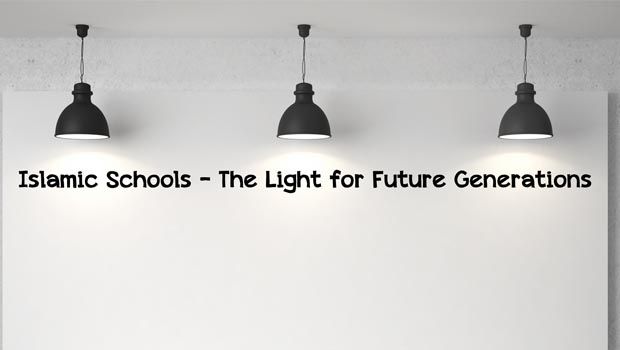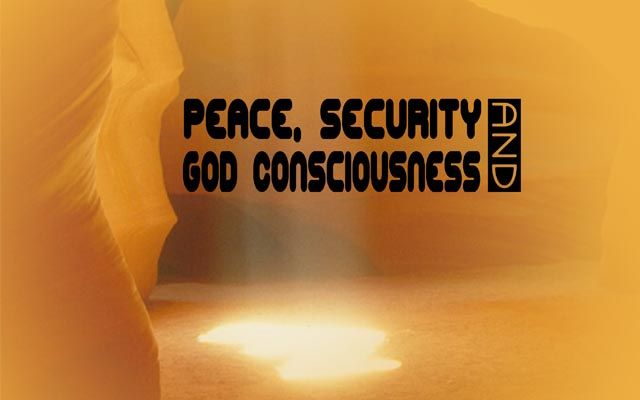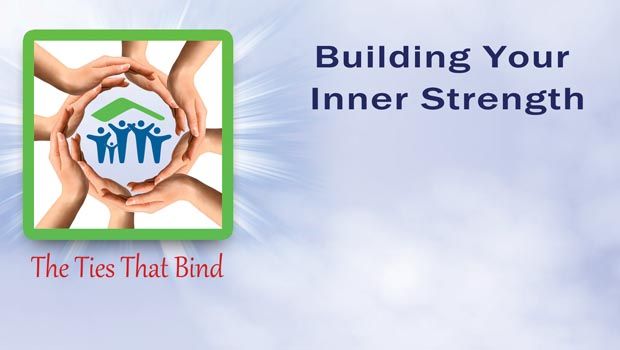As we know, the Glorious Quran contains many stories related to the Messengers that were sent by Allah (SWT). These stories about the great men are not bedtime stories, nor should we take them as entertainment. Rather, the stories serve as great lessons and reminders for all of us. A striking thing about the stories of the Messengers of Allah is that the Messengers mainly spoke about two things: spiritual awakening and social reform.
The fountainhead of Islamic belief is that there is none worthy of worship except Allah (SWT). So this was the aim of all the Messengers of Allah: to rejuvenate the spirituality of the people, to come and redirect humanity to the right path, i.e. to the light of Islam. To show people the way to develop an appropriate relationship with the Creator was the central mission of all of the Prophets (pbut).
However, equally as important as the spiritual awakening that the Messengers of Allah brought into people that were spiritually bankrupt is the idea of social reform. The Messengers of Allah taught and preached, but their preaching and their thoughts and their education did not stop at “Lailaha illallah”.
For instance, Prophet Musa (pbuh) invited people to worship none but Allah. However, besides the spiritual bankruptcy among people, there was something else that was going on. There was political tyranny, a group of people was downtrodden, marginalized, and exploited. Musa (pbuh) could not solely invite people to have a proper relationship with their Creator and say nothing about the rotten condition many people were living in. People would not listen. So, Musa (pbuh) not only taught them “Lailaha illallah” but also spoke on behalf of the masses. Musa (pbuh) addressed Firoun directly. Following Allah’s command, he spoke softly to Firoun. He did it with sincere hope that maybe Firoun would have a change of heart and become a better person, because if Firoun became a better person, then you could count on improvement in the entire state of Egypt.
Musa (pbuh) started by inviting Firoun, “We are the Messengers (Haroon and Musa) of your Lord.” They made it a personal invitation and invited him to worship Allah (swt) alone. So Musa (pbuh) saw the oppression taking place and he confronted the oppressor in a gentle and civil manner.
All the Messengers of Allah were engaged in the reality of their time. They directly confronted the challenges and problems of their time. Another great example is Prophet Lut (pbuh). He came to his people with a clear message: “Worship none but Allah”, and this was the aspect aimed at the spiritual awakening of the people. However, during the time of Lut (pbuh), there was also another problem rampant in society. Not only were people spiritually bankrupt, but they were morally bankrupt, indulging in the fulfillment of improper sexual desires. What did Lut (pbuh) do? In addition to inviting them to “Lailaha illallah”, he worked for social reform. He spoke against their behavior and their wicked ways of life.
Similarly, the Prophet (pbuh) invited people to “Lailaha illallah”. However, along with a return to monotheism, social reform was imperative. People were being wrongly enslaved, women were oppressed, and the weak were marginalized. Nobody stood up for their rights and spoke out for them. It was the Prophet (pbuh) who took a stand on their behalf. He spoke against alcoholism and against the exploitation of the poor and needy. In fact, in the fourth year of prophethood, he and his companions were prosecuted and tortured.
Quran asks us a very simple question: “Have you seen the one who denies the religion?” Our first instinct would be to say one who doesn’t pray or doesn’t believe in the Day of Judgment is the one who denies the religion. But the Quran gives us a totally different account. “It is he or she who repels the orphan with harshness; and he does not encourage the feeding of the poor and the needy.” Unbelievable! This is the Deen from Allah (SWT). These are the teachings of the Prophet (pbuh).
Prophet Shuaib (pbuh) presents another great example. The Quran tells us, “And to the people of Madian, we sent them their brother Shuaib.” (Surah Al-Araf) Madian was very important geographically as it was strategically located where caravans met and business transactions happened. So Shuaib (pbuh) not only reminded them to worship Allah (SWT), but told them, “I fear for you the chastisement of an encompassing day! O my people, be just in your measurements and weight. And do not torture people, do not deprive of people that which belongs to them. And do not go around the earth intending mischief. That which you earn in a proper way, the way that Allah (SWT) approves, is what is best for you. If you the people believe Me.” How did the people respond? They started mocking him! Shuaib (pbuh) did not give up or resort to harsh methods to stop people. He simply reiterated, “I wish not to do that for which I am forbidding you of doing. You will not find me guilty of double standards or hypocrisy.” He then went on to prove his sincerity, an essential ingredient of social reform by saying, “I only wish for your betterment to the best of my ability.”
It’s our moral obligation that when we see the social ills around us, we raise awareness and call people away from them.Whether people respond to the call for social reform or not is almost irrelevant. These ills are not for us to curse; these ills are for us to address and try to fix as much as we can. Nowadays, you cannot help but admire these young activists in the West who are marching in the streets, protesting the wars, the WTO, the GH Summit. These young activists who live in a comfortable life in their own countries are feeling the pain of other people. Why aren’t we Muslims realizing that this is part of our Deen? Isn’t this the Sunnah of the Prophet (pbuh)?
It is remarkable how in the farewell sermon, the Prophet (pbuh) addressed the people. He said “O People”, not “O Muslims” or “O Believers”. He said “O People” because his message is a universal message. He was the leading activist of all times. He took up issues that really mattered. The Quran tells us that we have been appointed as people who are constantly engaged in the eradication of evil and in the progressing and facilitating good. We are supposed to be the ones who do not live for ourselves but rather live to make sure that other people also have human dignity and integrity. This is the message of Islam.
For us as Muslims, being an activist is an essential element of our faith. Didn’t the Prophet (pbuh) say that if you see something wrong, you must do something about it? He advised us to either speak against it, eradicate it physically, or at least denounce it in our hearts. And then He (pbuh) said the last option is the weakest level of faith. The point is that we must learn from these teachings, we should not take these stories for entertainment. Rather these stories and the Ahadith of the Prophet (pbuh) are mapping for us a way of life, a path to success.
Some Reminders
1 We must be engaged in reality. We have to get engaged and involved. This is not a suggestion or a recommendation; this is an obligation. Unfortunately, too often we hear our elders cursing social ills around us, and then taking the attitude that our children will fix them. Do we simply sit around and watch? Act as if we don’t count?
2 As we listen to these stories, there is a sense of care among the Messengers that you can sense. They constantly reminded people, that “I am one of you”, or “you are my people”. They addressed people out of sincere concern and love in a way saying “I fear for you”. We are not following these great models when we think of problems as other people’s problems. The world is becoming so small nowadays that any social ill will creep into any community, and no community is immune from this. So do not think that because these are someone else’s problems today, they cannot become yours tomorrow! They very well could; it’s just a matter of time.
3 When there are so many social ills that we need to be engaged in, we need to choose our battles wisely. We have to be mature as to which ones we choose to fight. We must carefully decide which social ill we are going to confront first and which one to speak about. We, the Muslim Ummah, sometimes are so easily offended and so easily provoked and instigated. Yes, we should appreciate the passion, but our responses are not mature. For example, people who write against the Prophet (pbuh), or Quran, or Islam (and some may even be Muslim), it might be wise to just ignore them. Even if somehow they are made to stop, is our situation any better? Would we have less poverty? More freedom? No, the situations of the masses will not improve because we decided to fight this battle. So what did we win? What was in it for us? We actually made someone more famous, seen as heroes, and we definitely made them rich! What did we gain? So we must carefully choose which causes we are going to take a stand on.
Upon closer look, we realize that the Prophet (pbuh) didn’t address every issue immediately. At times, he remained silent. His silence was not an approval of the social ill that was taking place. It’s all about timing. Always remember that the teachings of Islam are not one horizontal line, but rather it’s a slope where some things are more important than others. The Prophet (pbuh) said, “Faith has 77 branches where the highest branch is ‘Lailaha illallah’ and the lowest part is to remove harm from the path of the people.” This implies that to remain occupied at the lowest level at the expense of the highest is not acceptable. The Prophet (pbuh) demonstrated this principle by emphasizing on Tawheed (oneness of God) in the early years of Prophethood and other issues, such as the prohibition of alcohol, were addressed much later. The point is that we must learn to choose our causes wisely. That’s why scholars speak of the “Fiqh” of determining priority of various matters.
What do we want? We want to be engaged in reality. Many social ills are out there by which we can tell people about Islam and by which we can aid and help in the betterment of our fellow human beings. We need to engage ourselves in grassroots campaigns such as the campaigns against drugs and poverty. Drugs are consuming our children, boys and girls, be they Muslim or Non-Muslim; they are being wasted. This is a situation where we, as the Muslim community, can speak about the teachings of Islam and the wisdom behind the prohibition of all intoxicants. It is an opportunity for us to say that the teachings of Islam are so good that we wish them for you as well.
We need to have an “Aids Awareness Day”. As the Muslim community, we can explain that we understand the reasons behind the rapid spread of AIDS. Islam provides a deterrent for the spread of AIDS by prohibiting sex outside of marriage. We need to engage in a campaign against domestic violence. It is appalling how many of our sisters are being abused day and night and the Muslim community remains silent. At times, it may even be happening in our own community, and we do not address it. Child abuse is another major social evil on which the Muslim community is silent. We cannot afford to be.
We need to put our Masajid to further use. Our centers are virtually empty from Fajr to Dhuhr: how about running health clinics? Or starting an educational institution where people can come and learn? We can make the Masjid a place of refuge for people. Our centers can serve with lots more than just five times prayers.
The bottom line is that we must be engaged in the reality and our response should be mature by choosing our causes wisely. Keep in mind though, that to bring change is mandatory, but to eradicate evil, we cannot use evil means. You cannot replace evil with evil. You can only eradicate evil with good and righteous initiatives.
I hope that, InshaAllah, with this short reminder I have provoked my fellow Muslims to be more proactive. Let us analyze: are we really doing what Islam asked us to, or are we just talking about it?
A brother was once visiting France and in the hotel he inquired if there was any Muslim around. A young individual came to him and said, “I am a Muslim. I am a Sunni, and I follow Maliki.” The brother looked at him and said, “Masha Allah, could you show me the direction of the the Qibla so I can pray?” The boy looked puzzled and said, “I don’t know. I never pray.” So he claimed he was a Muslim, he was a Sunni, and a Maliki, yet he did not pray.
If what you believe in does not impact how you behave, then what you believe in is not important. We can say all the nice things we want to say about Islam, but unless we put it into practice, nice words remain just that, words without any practical relevance.
Nobody is interested in just nice words. People want to see results. In current times, as a Muslim community, we have a lot to show for, but let us begin by this “Care for Humanity” grassroots effort. When we say this, we are not pretending to be anything that we are not, we are not pretending to be like anybody else, but we are just trying to be what the Prophet (pbuh) was to humanity.




